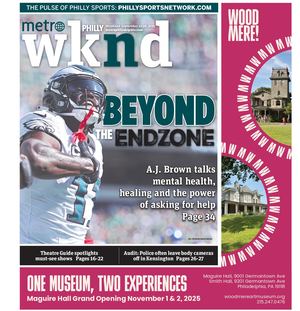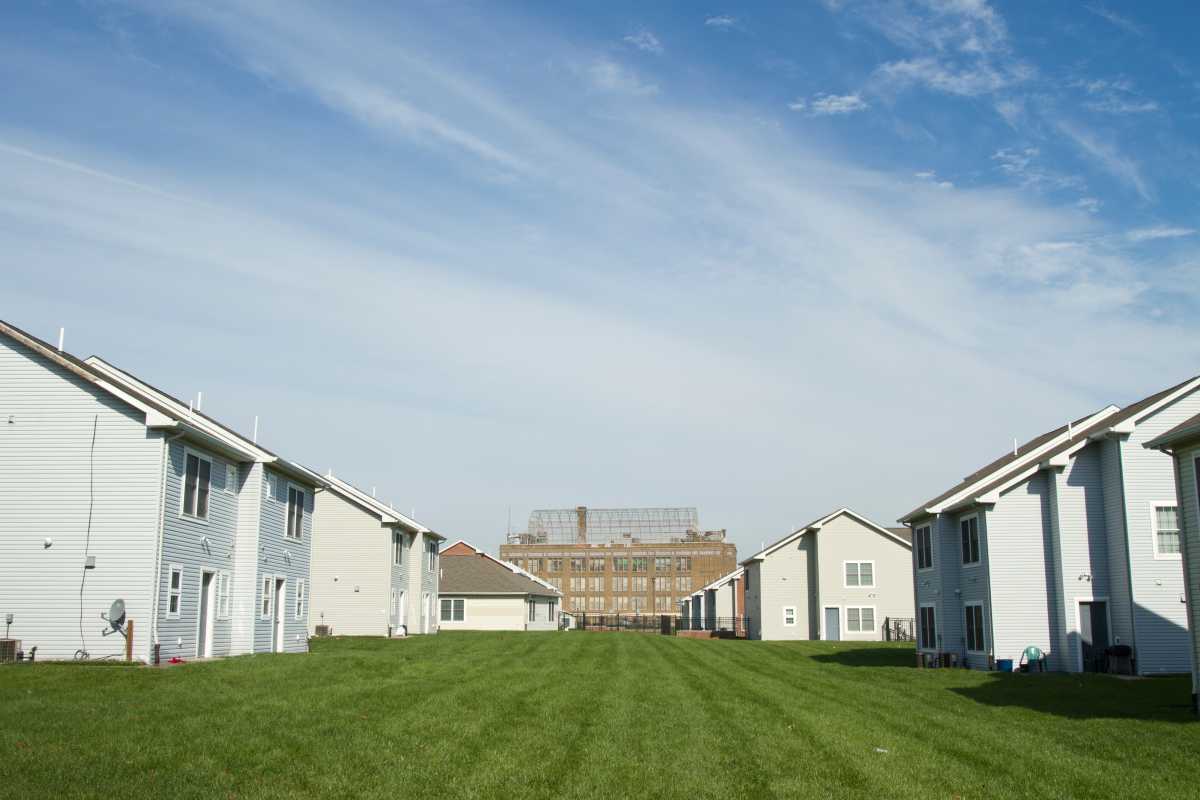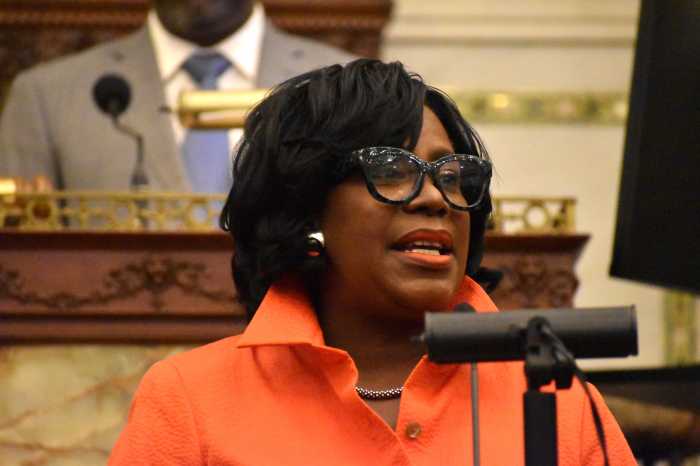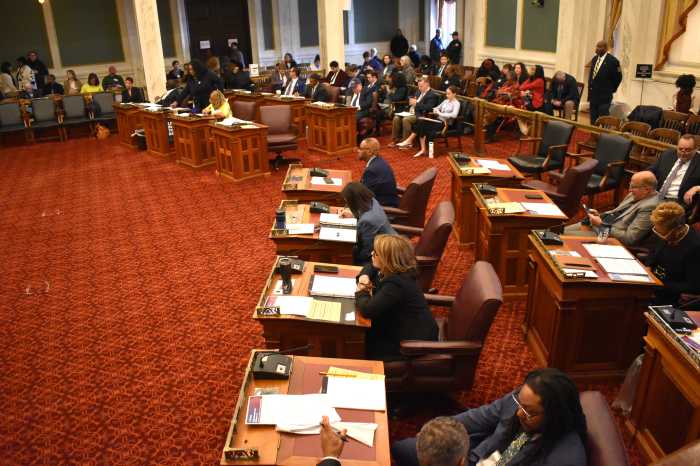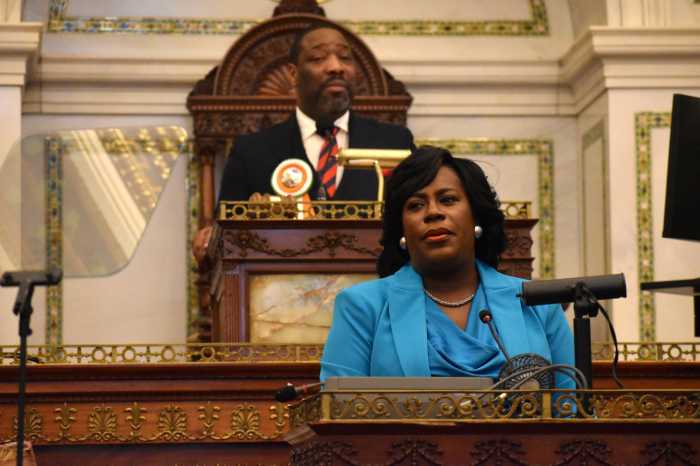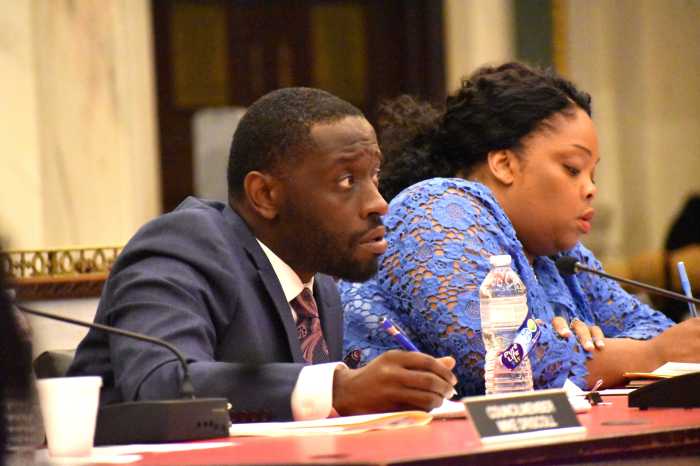Last week, the Committee of Housing, Neighborhood Development and the Homeless gathered with Philadelphia residents and housing advocates to address the city’s affordable housing crisis.
The City Council hearing fittingly began with a stern yet respectful conversation between the Housing Committee members — mostly Councilmembers Jamie Gauthier, Rue Landau, and Cindy Bass — and the Interim Director of the Division of Housing and Community Development (DHCD) Mark Dodds.
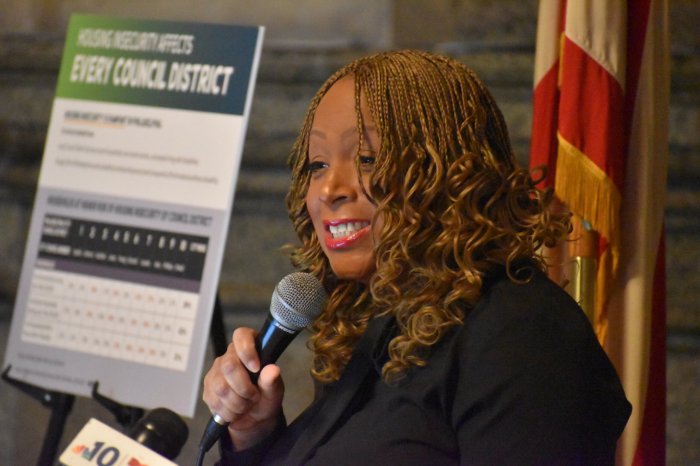
The DHCD is a part of and is funded through the city’s Department of Planning and Development. From 2024 to 2025, the Division of Planning and Development budget was cut in half from $35.6 million to its current $17.7 million.
Gauthier, Committee Chair, and Bass, Council Majority WHIP, both highlighted the potential issue of housing programs being cut from the federal government under the second Trump administration.
“Has there been any consideration to dedicating an annual bond to our housing programs?” Gauthier asked Dodds.
“We’re thinking about how to plug these huge gaps… but I don’t have details to share at the moment,” he responded.
During the first Trump term, in his 2019 budget proposal, Trump attempted to cancel Housing Choice Vouchers, Community Block Grants, and a variety of other housing programs funded through the federal government. Now, the president is again attacking federal programs designed to provide low-income people with affordable housing.
Navigating the data
Much of the conversation between City Council and Dodds revolved around reporting the effectiveness of the office’s spending—Dodds repeatedly referred to the Housing Action Plan dashboard.
The Housing Action Plan dashboard highlights the successes and failures of the Philadelphia Division of Housing and Community Development. The figures on the dashboard were updated on Tuesday, Feb. 18, for the first time since 2023, despite Dodds claiming that the dashboard is updated twice a year.
The verbiage the DHCD uses to explain its figures makes understanding their data difficult. Their work is recorded under two categories: “new” and “preserved.” According to the Division of Housing and Community Development “preserved units are currently occupied units preserved via physical rehabilitation and/or affordability assistance, and new units are units newly occupied or constructed.”
In 2023 and 2024, the annual goal of the department was to create or preserve 250 units of housing for the homeless. In 2023, the department made 14 new units for the homeless and preserved 20. In Mayor Cherelle Parker’s first six months in office, the DHCD did even less, creating 5 new units and preserving 6 for the homeless, all of which were rental arrangements.
The DHCD partners with a wide variety of housing groups and programs across the city. These again are broken into the categories of new and preserved. There are 12 programs for homeowners who need “preservation assistance” and 13 for renters; these programs include things like the Adaptive Modifications Program to make homes more accessible to people with disabilities, the Heater Hotline Program, Shallow Rent programs, and Eviction Diversion Programs. These preservation programs are the bulk of what the DHCD are executing for low income Philadelphians, which aim to keep people in their homes.
Skewed numbers
On Tuesday morning, Parker announced her third executive order of the year, announcing the H.O.M.E Initiative, which is working towards the Mayor’s stated goal of creating or repairing 30,000 housing units in Philadelphia during her first term. During this announcement Parker listed what she described as “principles that will serve as the North Star for planning” the first of which was “preserving our homes.”
The verbiage the Mayor’s office uses to set expectations for her housing policy is carefully selected, and could very well be how the city reaches her stated goal of 30,000 housing units. The headlines read “Philly has a Plan for 30,000 Housing Units” however the way the DHCD currently calculates their housing figures counts acts of “preservation” and home repairs funded through the DHCD towards their totals. According to the DHCD, from January to June of 2024 the department created 4,139 new units of housing, 3,309 of which were market-rate, not “affordable housing.”
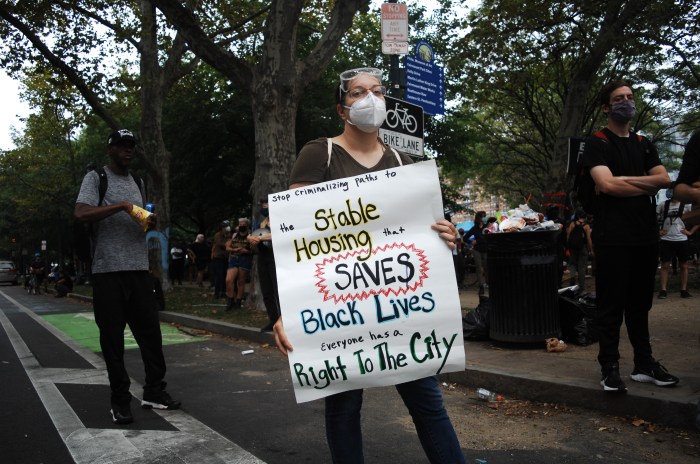
Similarly the statistics on “preserved housing” could be skewed because the two most used DHCD funded services are the Heater Hotline Program and the Basic Systems Repair Program which together accounted for 3,306 of the 4,525 preserved houses. Technically replacing a heater preserves a house, so ultimately in one or two years the Mayor’s office will be able to claim that the goal of creating or repairing 30,000 houses is successful under their current terminology. Using the current verbiage of DHCD reporting, the current administration was able to create or preserve 8,665 units of housing in six months. The Division of Housing and Community Development did not respond to Metro’s request for comment.
The Philadelphia Housing Opportunities Made Easier (H.O.M.E) Initiative will be managed by the Department of Planning and Development. According to the executive order, Angela D. Brooks, an experienced urban planning expert who is overseeing the H.O.M.E Initiative, will have 30 days to deliver a report and plan to reach the administration’s housing goals, then every six months thereafter.
According to the PEW Charitable Trust almost half (48.5%) of Philadelphia renters “were cost-burdened, meaning they spent 30% or more of their income on rent and utilities.” In a testimony before City Hall, Mindy Watts, a private City Planning expert, highlighted that “since 2000 median income has increased by just 9% while the median home value has jumped by 107%.” Furthermore, new data from the city’s recent Point-in-Time Count shows that Philadelphia’s homeless population increased by nearly 38% last year.
Watts advocated for the city to implement its own criteria for eligibility in the city’s housing programs, and for the city to “rethink the way that Philadelphia allocates its housing funds to address the housing affordability crisis.”
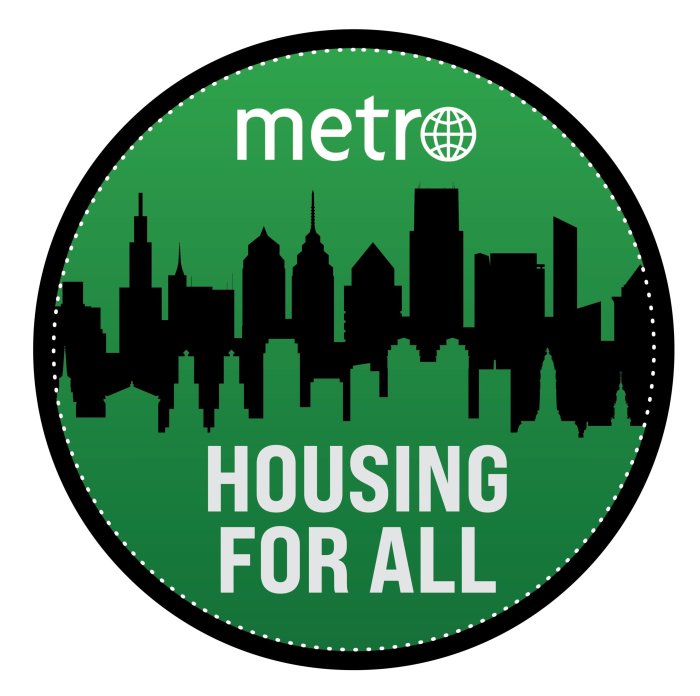
‘Housing For All’ is a two-year project in which Metro Philadelphia will investigate the city’s affordable housing crisis. It is made possible by The Lenfest Institute for Journalism’s Philadelphia Local News Sustainability Initiative grant.
